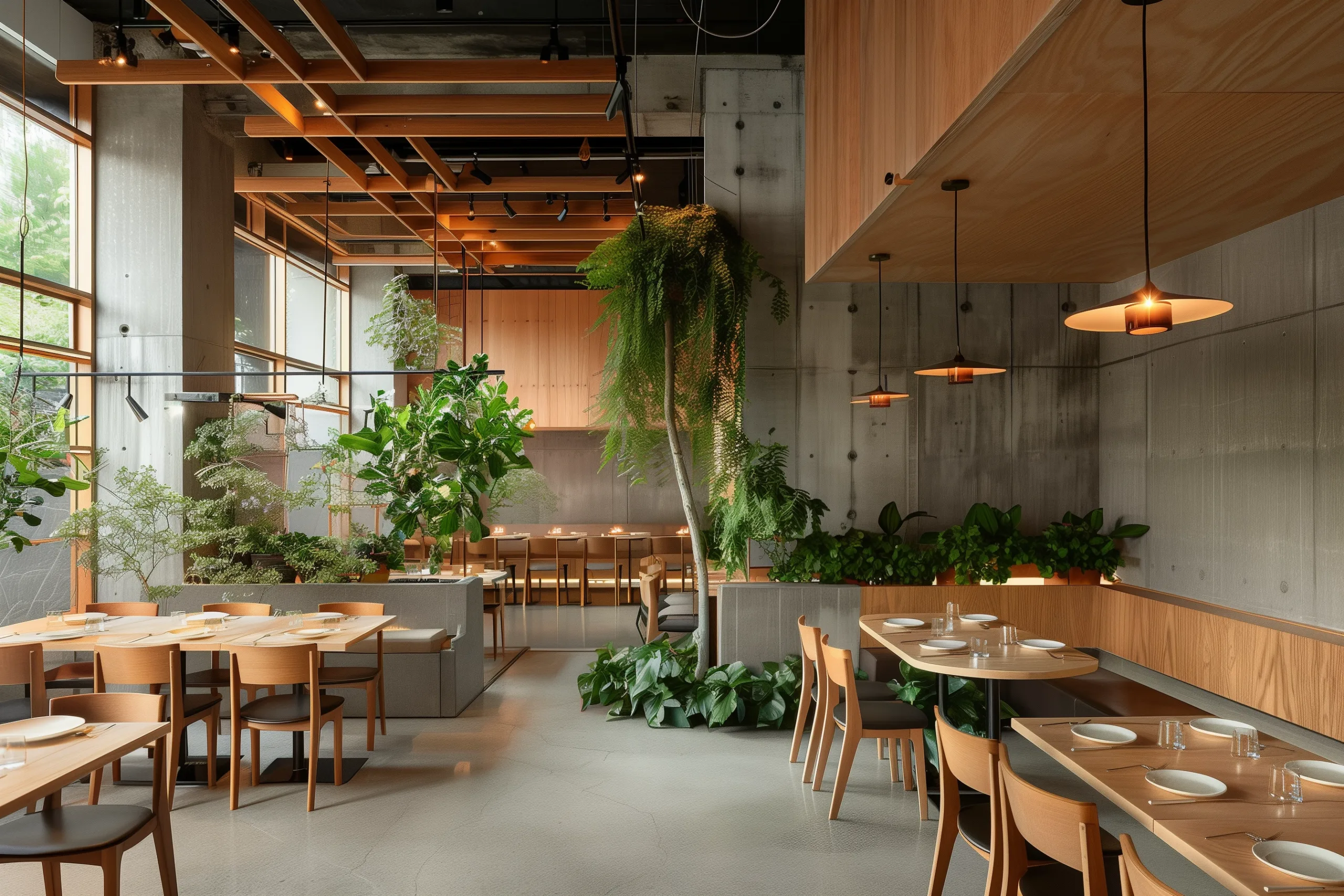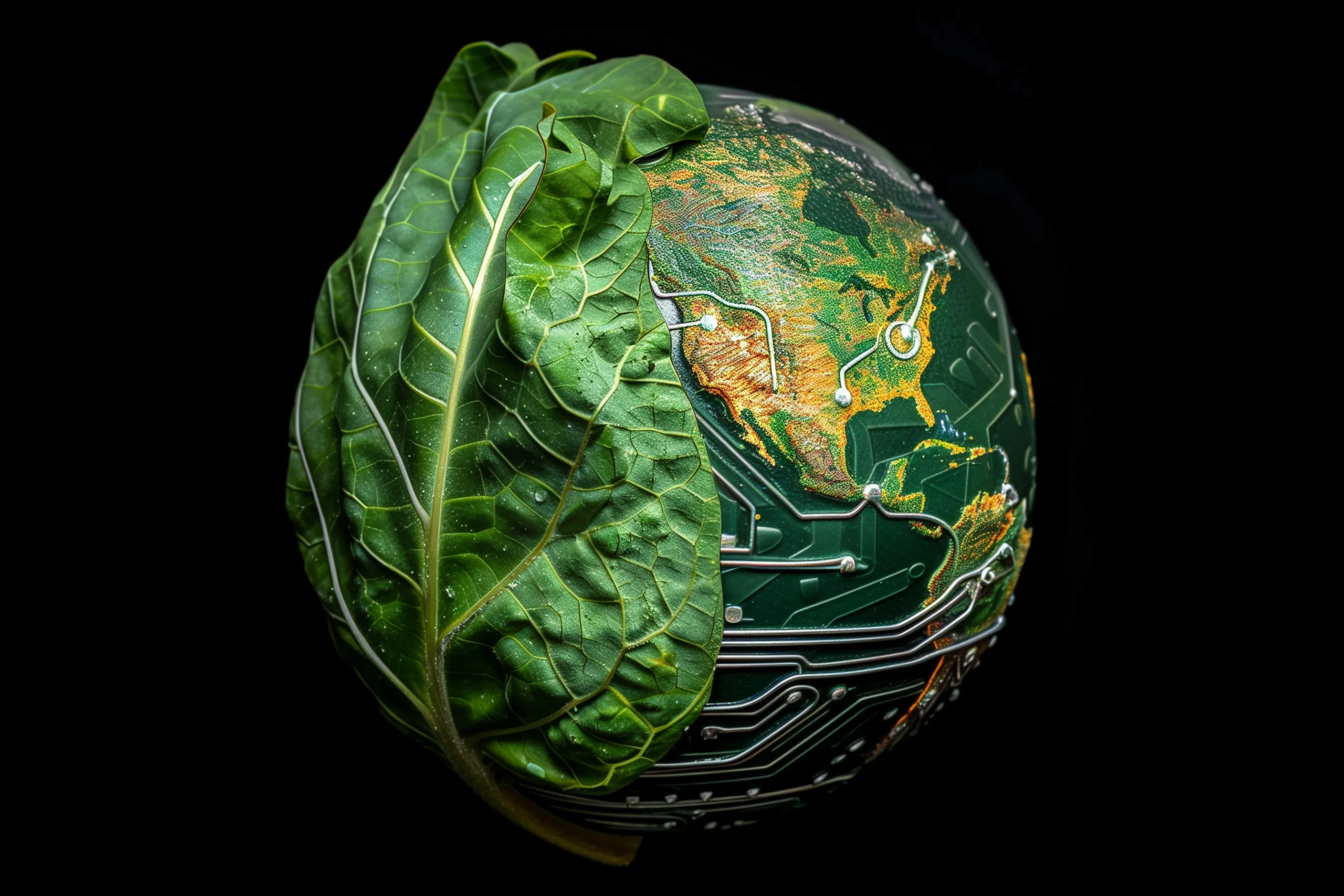published February 15, 2024 | 8 min read
The intersection of artificial intelligence (AI) and environmental sustainability in the fine dining industry marks a transformative era for gastronomy. With the urgent need to address global waste and environmental degradation, AI offers a beacon of hope. It equips chefs and restaurateurs with the tools to revolutionize their kitchens, making zero-waste goals not just aspirational but achievable. This journey into AI-driven sustainability practices unveils how technology can be a pivotal ally in crafting dining experiences that are as kind to the planet as indulgent for the palate.
The AI Revolution in Waste Reduction
The culinary world, particularly fine dining, is notorious not just for its innovation and flair but also for its contribution to food waste. This waste is multifaceted, stemming from over-purchasing, inefficient storage, and the meticulous standards for presentation that see imperfect but edible ingredients discarded. The environmental impact is profound, contributing significantly to greenhouse gas emissions and the depletion of resources.

A chef consulting a digital tablet
AI introduces a paradigm shift in managing this waste. Through advanced data analytics, AI systems can predict demand with remarkable accuracy, allowing for precise purchasing that minimizes excess. These systems track inventory in real-time, alerting kitchens to use ingredients before spoilage and adjusting orders to prevent overstocking. Moreover, AI’s ability to analyze waste patterns enables restaurants to pinpoint where and why waste occurs, leading to targeted interventions that reduce unnecessary waste.
Overcoming Challenges and Embracing the Future: AI’s Role in Sustainable Fine Dining
The transition towards AI integration in fine dining kitchens necessitates overcoming several hurdles, yet it also opens up a plethora of opportunities for innovation and sustainability. The challenges mainly revolve around the initial costs associated with adopting AI technologies and the subsequent need for staff training. Implementing AI solutions, such as predictive analytics for waste reduction and inventory management systems, requires a significant initial investment in both hardware and software. Additionally, staff must be trained to effectively utilize these new tools, which can be a time-consuming and ongoing process.




A culinary team planning the menu
Despite these challenges, the future directions for AI in the fine dining industry are promising and expansive. As AI technology continues to evolve, it becomes more accessible and user-friendly, reducing both the financial and logistical barriers to entry. Moreover, the growing awareness and demand for sustainable practices in the culinary world are likely to drive further innovation in AI applications aimed at enhancing environmental sustainability. This could include more sophisticated waste tracking systems, enhanced predictive analytics for customer preferences, and even AI-driven solutions for energy and water conservation.
Case Studies: AI in Action
Inventory Management Optimization
In a prominent New York City restaurant, the introduction of an AI-driven inventory management system marked a pivotal moment in its pursuit of sustainability. This advanced system employed machine learning to sift through extensive data, including historical sales figures, seasonal variations, and the influence of local happenings, to forecast ingredient demand with unparalleled precision. Such detailed analytics enabled the restaurant to refine its procurement strategy, ensuring orders were tightly aligned with actual needs and substantially reducing surplus stock.
The AI system’s capability to dissect and understand consumption patterns and waste generation within the restaurant’s operations proved instrumental. It illuminated not only the volume but also the underlying reasons for waste, providing the culinary team with data-driven insights. These insights informed adjustments in menu planning and portion sizing, optimizing the use of ingredients and minimizing leftovers.
This strategic application of AI technology yielded a remarkable outcome—a 25% reduction in food waste over a mere six months. This significant decrease translated into notable cost savings and a markedly smaller environmental footprint, underscoring the restaurant’s commitment to ecological stewardship. Beyond its immediate benefits, this success story served as an inspiration across the fine dining sector, propelling a broader industry-wide consideration of AI as a tool for achieving sustainability. It underscored a growing recognition, especially in metropolitan hubs like New York, of the critical role technology plays in harmonizing culinary artistry with environmental responsibility.




A fine dining restaurant with a digital display
Demand Forecasting for Reducing Overproduction
In the vibrant culinary landscape of San Francisco, a Michelin-starred restaurant has embraced AI for demand forecasting, setting a new precedent for sustainability in the fine dining sector. Utilizing sophisticated AI models, the establishment meticulously analyzed a wealth of historical dining data, encompassing everything from seasonal trends and past reservation patterns to local events that could sway diner turnout. This comprehensive data analysis enabled the restaurant to generate accurate predictions for customer demand across its menu offerings.
The AI’s predictive power was harnessed to fine-tune food preparation volumes, ensuring the kitchen’s output precisely matched anticipated demand. This strategic alignment significantly curtailed the common industry issue of overproduction, thereby minimizing food waste—a key goal for the restaurant in its pursuit of sustainability. Through this AI-driven approach, dishes were prepared with just-in-time precision, drastically reducing leftovers and supporting the restaurant’s ethos of environmental stewardship.
This pioneering initiative not only demonstrated the transformative impact of AI on operational efficiency and waste reduction but also established a benchmark for ethical culinary practices within the upscale dining community. By leveraging technology to align their operations more closely with sustainability principles, the restaurant has inspired a broader movement within the industry towards responsible and efficient culinary practices, proving that high-end dining can lead the way in environmental conservation.




Eco Friendly Restaurant
Waste Tracking for Sustainable Operations
In the culinary capital of Copenhagen, a distinguished restaurant embarked on a transformative journey towards environmental sustainability by integrating an advanced AI-enabled waste-tracking system. This innovative system is designed to perform a detailed analysis of waste production, categorizing and measuring each type of waste generated within the restaurant’s operations daily. By leveraging machine learning algorithms, the system provides deep insights into the patterns and causes of waste, enabling the culinary team to pinpoint areas for improvement.




Eco Friendly Restaurant
Utilizing the data provided by the AI, the restaurant has been able to refine its menu planning process and adjust portion sizes with unprecedented precision. This targeted approach has led to a remarkable 30% reduction in food waste, marking a significant stride towards achieving zero-waste operations. The real-time analysis capabilities of the AI system have been crucial in allowing the restaurant to adapt quickly and make informed decisions that align with both their sustainability objectives and operational needs.
The success of this AI-driven initiative has not only enhanced the restaurant’s efficiency and reduced its environmental footprint but also served as an inspiring model for how technology can be harnessed to address one of the most pressing challenges in the culinary industry today. Through this pioneering approach to waste management, the restaurant has demonstrated a commitment to sustainability that extends beyond the kitchen, influencing the broader industry towards more responsible and environmentally conscious practices.








